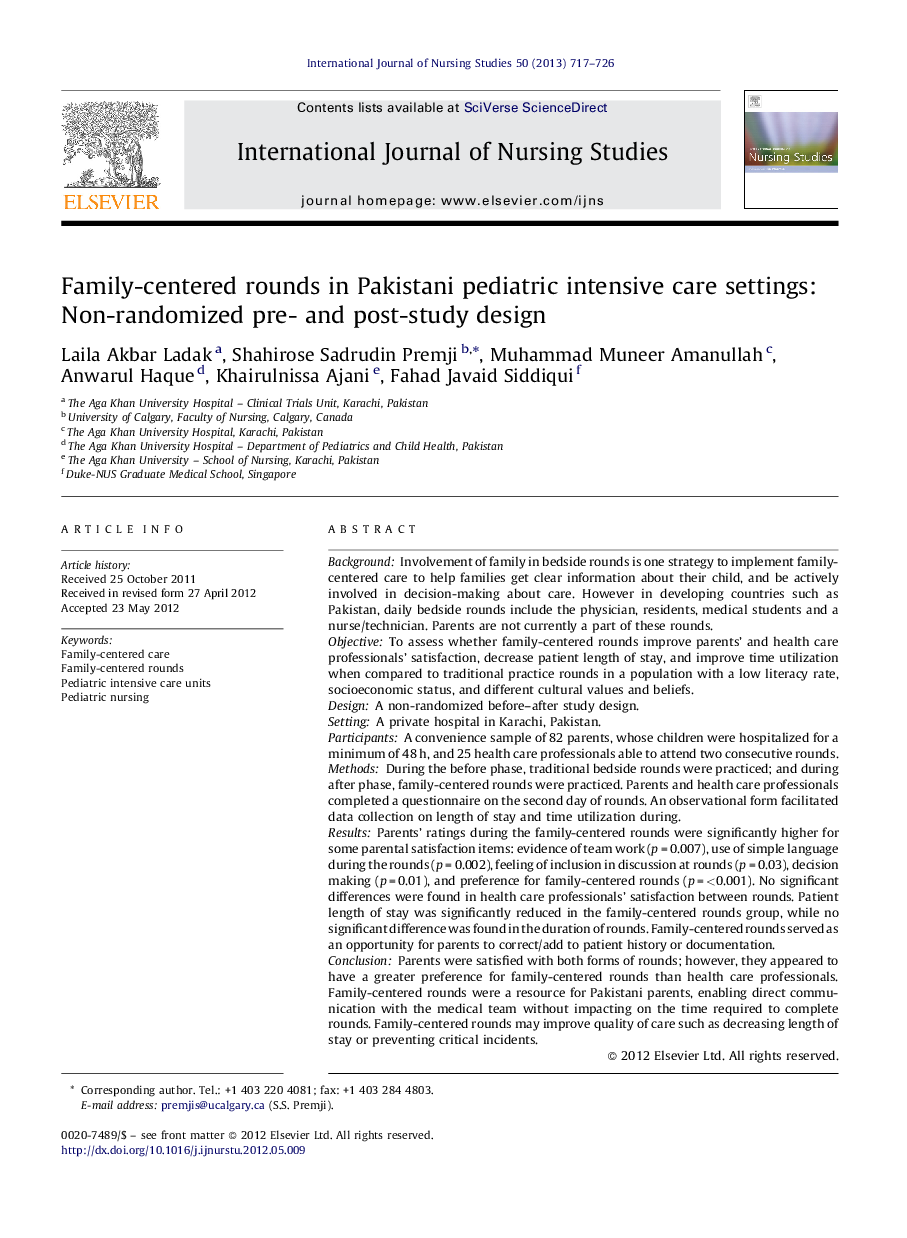| Article ID | Journal | Published Year | Pages | File Type |
|---|---|---|---|---|
| 1076761 | International Journal of Nursing Studies | 2013 | 10 Pages |
BackgroundInvolvement of family in bedside rounds is one strategy to implement family-centered care to help families get clear information about their child, and be actively involved in decision-making about care. However in developing countries such as Pakistan, daily bedside rounds include the physician, residents, medical students and a nurse/technician. Parents are not currently a part of these rounds.ObjectiveTo assess whether family-centered rounds improve parents’ and health care professionals’ satisfaction, decrease patient length of stay, and improve time utilization when compared to traditional practice rounds in a population with a low literacy rate, socioeconomic status, and different cultural values and beliefs.DesignA non-randomized before–after study design.SettingA private hospital in Karachi, Pakistan.ParticipantsA convenience sample of 82 parents, whose children were hospitalized for a minimum of 48 h, and 25 health care professionals able to attend two consecutive rounds.MethodsDuring the before phase, traditional bedside rounds were practiced; and during after phase, family-centered rounds were practiced. Parents and health care professionals completed a questionnaire on the second day of rounds. An observational form facilitated data collection on length of stay and time utilization during.ResultsParents’ ratings during the family-centered rounds were significantly higher for some parental satisfaction items: evidence of team work (p = 0.007), use of simple language during the rounds (p = 0.002), feeling of inclusion in discussion at rounds (p = 0.03), decision making (p = 0.01), and preference for family-centered rounds (p = <0.001). No significant differences were found in health care professionals’ satisfaction between rounds. Patient length of stay was significantly reduced in the family-centered rounds group, while no significant difference was found in the duration of rounds. Family-centered rounds served as an opportunity for parents to correct/add to patient history or documentation.ConclusionParents were satisfied with both forms of rounds; however, they appeared to have a greater preference for family-centered rounds than health care professionals. Family-centered rounds were a resource for Pakistani parents, enabling direct communication with the medical team without impacting on the time required to complete rounds. Family-centered rounds may improve quality of care such as decreasing length of stay or preventing critical incidents.
